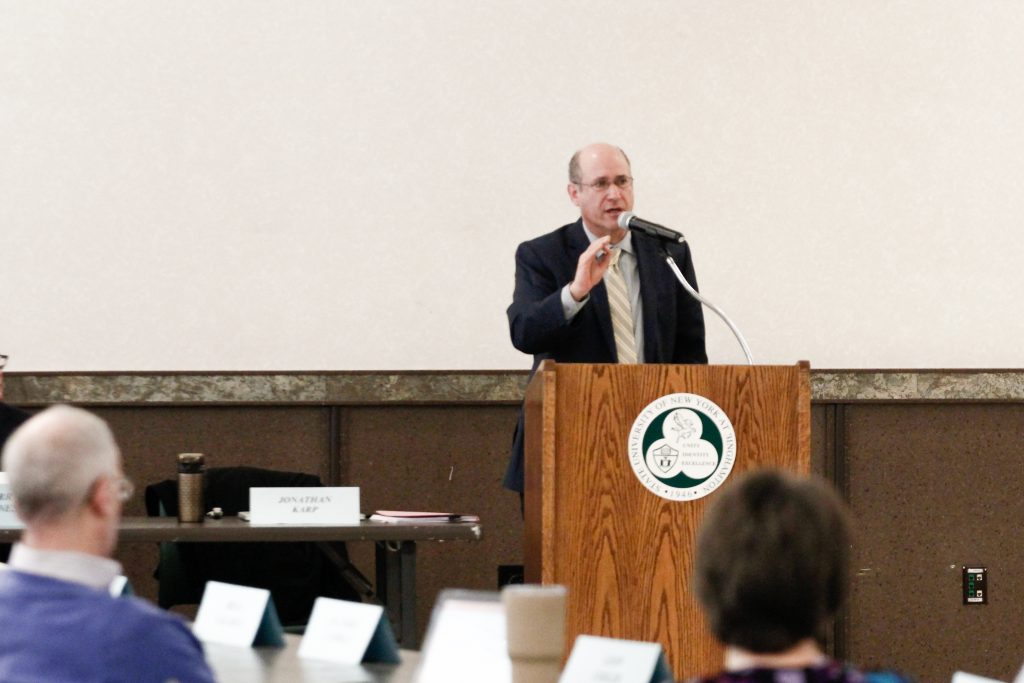
In a policy implemented in March, SUNY pledged to make scholarly resources more accessible and affordable for students through open access. This week, Binghamton University’s Faculty Senate joined other SUNY schools in passing a campus-level open access policy.
On Tuesday morning, around 40 members of the Faculty Senate gathered in Old Union Hall to vote on the policy, which would make select scholarly literature freely available to the public. According to Elizabeth Brown, director of assessment and scholarly communications for University Libraries, the policy was drafted by University Libraries staff before it was submitted for review by the Faculty Senate’s executive committee.
“First, there were some discussions about it, and then it was sent to the full Faculty Senate for approval on Dec. 4,” Brown said. “It’s the faculty members’ choice to [pass] this, however — the researcher or content creator.”
According to Brown, all professors at the University will be expected to follow the policy; however, the choice to submit articles for open access is ultimately voluntary because the policy’s impact depends on the publication a faculty member’s work is included in. Some publications don’t offer open access, while others do. If a professor wanted to opt out of the policy, they could choose to submit their work only to journals without open access.
“How open access would become available is if the journal has an open access option,” Brown said. “That’s one exception to the policy. In some cases, there just aren’t any open access journals available for the work that the researchers are doing.”
According to Jonathan Karp, chair of the Faculty Senate and an associate professor of history and Judaic studies, a proposal for the policy was introduced a year ago and has since been met with little opposition.
At the Faculty Senate meeting, the policy was met with nearly unanimous approval. There were five abstentions out of the 40 members. According to Karp, one of the only concerns faculty members raised about the policy was whether or not some articles could be opted out of the policy if they were published in a journal with open access.
“There were concerns that it would affect the academic situation of submitting articles,” Karp said. “Some professors weren’t sure if articles would be submitted automatically to a journal and could choose to opt out, or if the policy would permit professors to submit articles [to the journals they’d prefer], or an opt-in version. Ultimately, the rules regarding submission are voluntary, but the policy is opt out, so there’s an expectation to submit one’s scholarly works.”
Additionally, the policy will apply only to journals, so professors won’t be required to make books open access.
According to Brown, the campus policy is a step toward complying with the overall SUNY-wide stance on open access.
“The SUNY-wide Faculty Senate that exists beyond [BU] passed a resolution that all SUNY campuses should have an open access policy by March 2020, so this is our way of responding to that resolution,” Brown said. “Stony Brook and Brockport are the other two SUNY schools that have passed the policy so far. There are also many college campuses outside of New York that have adopted the policy.”
Karp said he thinks open access will be beneficial to campus researchers and scholars alike.
“I think it’s a good thing,” Karp said. “There are already venues that do this — that provide scholarly articles online for free. It’s good all around.”


